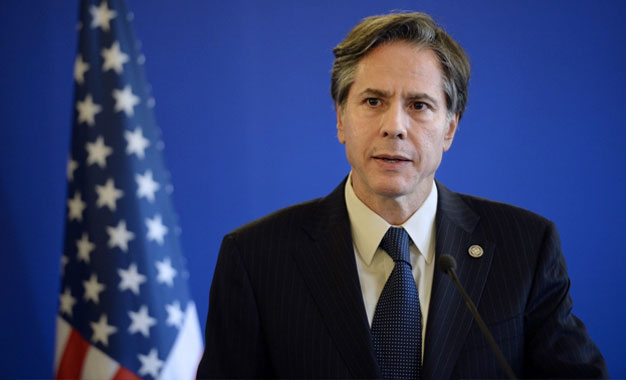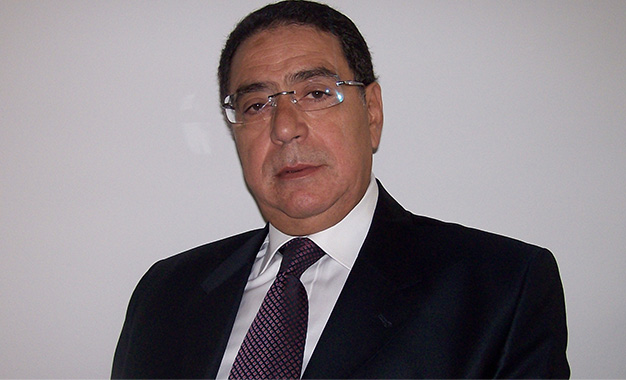
In this aide-memoire for the attention of US Secretary of State Antony Blinken, the author shares some thoughts and views of many Tunisians on the decision-making task that awaits the senior US official with regard to assistance from the “Military Financing Program’’ assistance for Tunisia.
By Taoufik Ouanes *

Dear Mr Secretary,
This public aide-memoire is written on my own initiative without being requested nor instigated by any person or quarter since I am politically independent and not affiliated to any political party. The purpose of this aide-memoire is to share with you some thoughts and points of view of many Tunisians as to the decision-making task ahead of you in relation with the “Military Financing Program’’ assistance for Tunisia.
Preliminary remarks:
1. It is important to underscore that the Tunisian regime since 2011 was dominated by Ennahda Islamist party. This party is strongly linked to the ideology of “political Islam”, which is far from Islam as faith and one of the three revealed religions. Despite alleged attempts, Ennahda exit from political Islam proved to be untrue, unwanted, and ideologically impossible. Political Islam end is an Islamic system of government (Califat) which exclude culture of pluralism, individual human rights, civil society, asv well as all principles based on secular values. In fact, Ennahda institutional approach approve democracy only in terms of balloting, not as a political culture of pluralism.
2. Such an approach is obviously not democratic. Thus, its an illusionary to believe or pretend that during the last decade, Tunisian regime under political Islamic domination was truly democratic. Therefore, asserting that, after the eviction of Ennahda, the country should come back to a “democratic political regime” sounds antinomic.
3. Furthermore, the last decade in Tunisia was profoundly characterized by a generalized corruption, an unprecedent economic crisis and a disastrous and a deadly of Covid pandemic management. These elements are of public knowledge and have largely motivated the popular movement spontaneously launched during the third week of July.
4. The assumption on which the Senate based its evaluation is that before 25 of July, the political system in Tunisia was democratic. As noted above, this is not accurate since, by definition, political Islamic system is profoundly theocratic and do not spare any room for real democracy. For ten years, Ennahda government did not need any additional power than that which it already possesses. Ennahda was the absolute master of the legislative authority and has profoundly infiltrated the judiciary. Tunisian political Islam had only to create a smokescreen, and distorting mirrors in order to rehearse a fake democracy in order to deceive national and international public opinion.
Observations on the issues raised by the Senate
5. The Committee on Appropriations, of the Senate invited you, Mr Secretary of State to submit a report and provide information on some raised issues regarding the ‘‘Foreign Military Financing Program’’ for assistance for Tunisia. The following elements could contribute to further enlighten you.
Tunisia Military role
6. Concerning points A and B of the report you are deemed to submit, It necessary to underscore that Tunisian military has, in no way, provoked, participated or supported the movement of 25th July. As mentioned above, this movement was initiated spontaneously by a huge number of Tunisian citizens all over the country. The President Saïed did not take any action until this movement started to become a risk to the public order by these intense and desperate demonstrations. Very large unemployment, extreme poverty, and dramatic health situation caused by the catastrophic and deadly management of COVID. Ennahda Government and Parliament are notoriously incompetent and corrupted. This movement degenerated into a serious threat to civil security and public order.
7. Tunisian Military, nor Tunisian President have preplanned the action taken on 25th of July. The main objective of this action was to prevent generalized unrest, turmoil and even civil war. The state of emergency was patent, serious and the 25th of July action became indubitable. The support and relief after this action are well known and cannot be denied. The decisions taken by the President were exclusively motivated by the necessity of peaceful management of the massive and desperate movement of a population exhausted by the failure and the exaction of 10 years of “Islamic political” regime.
8. In such circumstances, Tunisian military had exclusively played a “law and order” role aiming at protecting, without discrimination, Tunisian citizens, private and public properties, and institutions. Since its creation in 1957, Tunisian army is famous for its political neutrality. The Tunisian army had always a patriotic attitude by serving the country and its population without any political interference or side taking. As an evidence, it is worth mentioning that during the 2011 revolution when the Tunisians, exasperated by Ben Ali dictatorship, were imploring the military to take the power but Tunisian army ignored such calls and remained disciplined and loyal to the country and refused to play any political role. The military provided humanitarian assistance and security protection. Exclusively! The same traditional attitude is prevailing since 25th July.
9. On another hand, Tunisian military fought terrorism since 2011, date of accession of political Islam to power. Ennahda ruling has proved very lenient vis-a-vis terrorism in Tunisia. On the contrary, Tunisian army has been fully committed to fight terrorism and has lost numerous soldiers in this struggle. Thanks to the military technical assistance of several countries, in particular the US, concrete and positive results have been achieved in defeating terrorism in Tunisian mountains which substantially contributed to the containment of terrorist activities coming from Libya and elsewhere.
10. Deeply rooted in the political neutrality doctrine, Tunisian military never “participated in or otherwise supported [any] democratic backsliding in Tunisia”. Not only since 25 July, but along its history. Any suggestive idea or induced suspicion is simply not true and would unjustifiably harm an army objectively allied to the international military forces committed in the struggle against terrorism. Such suspicions are unfounded and risk to demobilize and discredit the army of a strategically important country in this regard. On the contrary, the continuation and even the intensification of the US military assistance to Tunisia are urgently needed and mutually beneficial. Put in question this assistance would be a mistake and a counter-productive decision.
11. Point C of the intended report is with related to “whether the [Tunisian! government is taking credible steps to restore constitutional order and democratic governance, including respecting freedom of expression, association, and the press, and the rights of members of political parties.”
12. To have a good understanding of this questioning, it is useful to keep in mind, as explained above, that the political situation in Tunisia prior to 25 July was not at all democratic. Therefore, the solution to the current situation in Tunisia is not to reinstate the Islamic and non-democratic political régime prior to 25th July. That would equate to restoring the status quo ante. The real solution is to urgently design substantial institutional reforms aiming at purging Tunisia from toxic political scoriae such as corruption, theocratic governance that prevailed during the last 10 years of Islamic ruling.
13. Such reforms must take place in the general framework of democratic principles: separation and mutual control of powers, real freedom of expression, effective participation of the civil society, associations and political actors in the management of the public affairs. Such initiatives should include legislative elections under transparent and fair electoral code, constitutional building process etc. This is an urgent task which need strong support from the international community. It can be achieved only by domestic adhesion and serene and constructive international cooperation. Any undue or fomented internal unrests or international pressures, hasting or threats would be counterproductive. The timing and the feasibility for such reforms should be initiated in good faith as fast as possible and as slowly as necessary.
14. Finally, it is important to dispel a growing unfair and fake rumor accusing the President Saïed of antisemitism. This is simply a fabricated accusation which I had the opportunity to plead against in this online newspaper (see Kapitalis 16 November 2021). During several months, the father of Kais Saïed, a schoolteacher protected and assisted a Jewish child during the occupation of Tunisia by the Nazi army at the aftermath of the second world war. Daily, this schoolteacher had to cross a Nazi barrage in Tunis to go to his job on his bike. Every day he transported this young girl to the school pretending that she was his own daughter. This girl was Gisele Halimi who became an internationally famous lawyer, an activist of gender equality and a minister of France under President Mitterand. Another example that demonstrates that Kais Saïed is far from having any antisemitic resentment was, when he was sworn as President of the Republic, he invited and warmly welcomed the Tunisian Chief Rabi.
15. The position of President Saïed in favor of a just and durable solution to the Arab Israeli conflict which takes into account the Palestinian rights is far from being peculiar. This is a general agreed position across the world, in particular by the successive US administrations.
Mr Secretary of State,
I am aware that all the information, and more, embodied in this aide-memoire are readily available to you. The aim of this text is basically to express a commonly shared feeling by a very large spectrum of the Tunisian population. It is therefore important to keep in mind that Tunisians, under all regimes and Presidents have never changed their commitment to democracy and human rights. Similarly, the strategic positioning of Tunisia in the free world camp was never denied except by the deceiving Islamic Political regime of Ennahda, which tried, unsuccessfully and during 10 years to corrupt the Tunisian society and institutions. The decisions of 25 July and 22 September put an end to this stratagem.
I hope that the US policy will not miss the target.*
Best regards.
* Lawyer and former UN staff member.
Aide-mémoire à l’attention du secrétaire d’État américain à propos de la Tunisie


Donnez votre avis